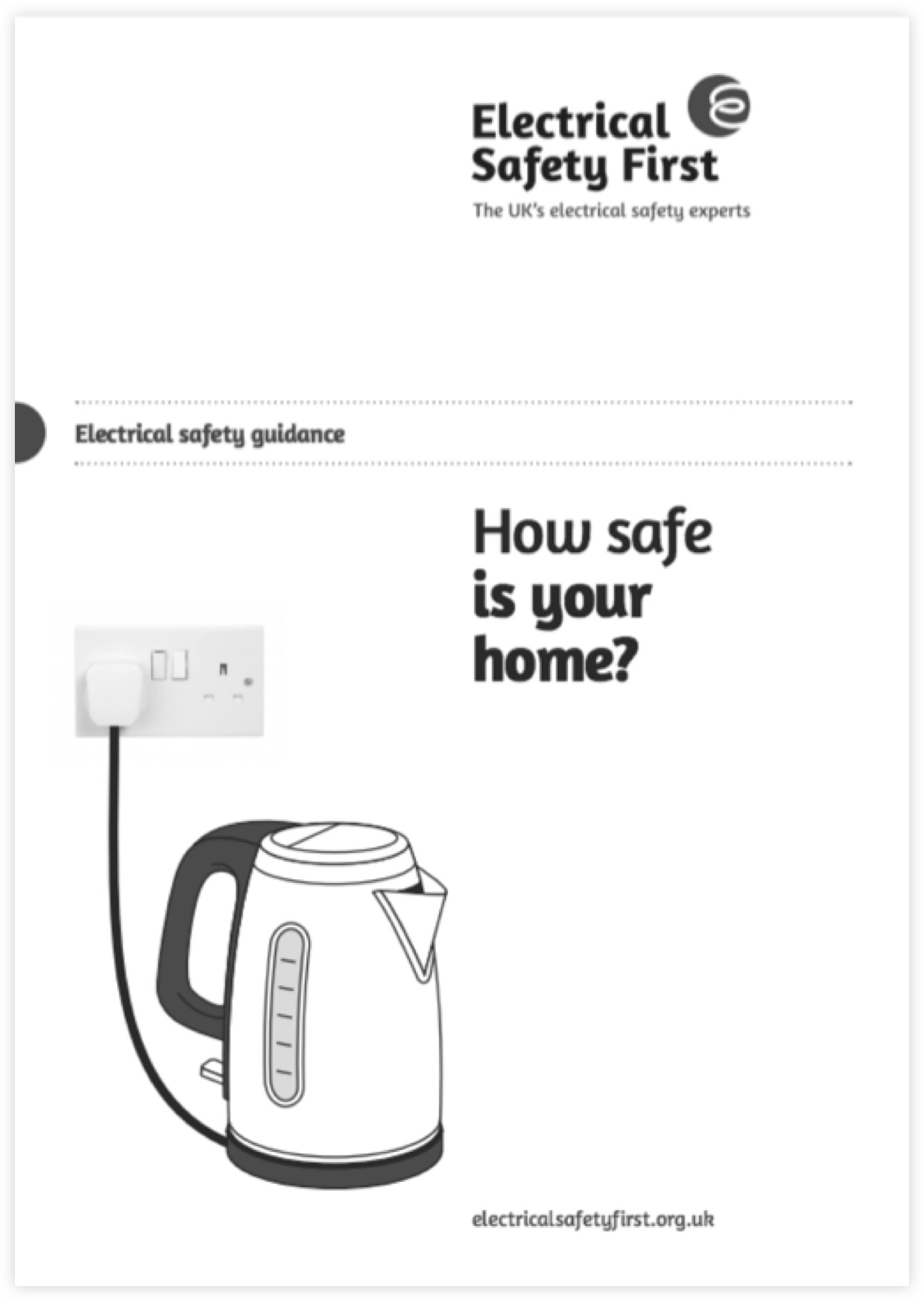Avoiding Electrical Fires
Every year, over half of accidental domestic fires in the UK are caused by electricity. Most of these are caused by electrical products, either through misuse or faults. Over half of these electrical fires start in the kitchen, with cooking appliances and white goods the main cause. We have put together some advice to help you keep your home and loved ones safe from electrical fires.
Fire Safety
- Consider fitting your fusebox with an RCD (Residual Current Device). It’s a life-saving device that switches the electricity off automatically if there is a fault. You can also buy plug-in RCDs for use in individual sockets.
- Have the electrical installation in your home checked by a registered electrician. Homeowners should have this done every ten years, or when you move house. Electrical Safety First recommends that privately rented properties are checked every five years, or on change of tenancy.
- Don’t store combustible materials (clothes, papers, cleaning materials etc.) close to your service head (cutout fuse), electricity meter or fusebox, particularly if these are under the stairs (a means of escape from upper levels in an emergency).
- Don’t overload electrical adaptors by plugging too many appliances into one socket, especially those with a high electrical current rating such as kettles, irons and heaters. Visit electricalsafetyfirst.org.uk/overloadingsockets to check that your sockets are safe.
- If you are using a portable heater to keep warm, keep it away from flammable materials like papers, curtains and furniture and never use one to dry your clothes.Turn off any electrical appliances that you are not using, particularly at night, when a fire can quickly spread unnoticed and cause more danger and damage.
- Before plugging your appliances in for use, check flexible cables for damage, wear and tear, and that the plug is fastened securely to the cable. Don’t use the appliance unless it and its cable are in good condition.
- Hand-held electrical appliances, such as hair dryers and straighteners, get very hot in normal use. Make sure that when you have finished using them, you switch them off, unplug them and put them away, preferably storing hair straighteners and similar beauty products in heat-proof pouches.
- Check your sockets regularly – if you see burn marks or they feel hot, get a registered electrician to check if they need repairing or replacing.
- Make sure that you have a working smoke alarm on each floor of your property – if a fire does start, this will give you a chance to get out safely and call 999 for help.
Staying Safe With Electrical Appliances
There are simple steps that you can take to minimise the risk of fire or electric shock when using appliances such as washing machines, tumble dryers, fridge-freezers and dishwashers:
- Always buy from a retailer you can trust and follow the manufacturer’s instructions when installing, using and maintaining electrical appliances.
- Don’t leave washing machines, tumble dryers or dishwashers running overnight or when you are out.
- If your appliance begins making a strange noise or isn’t working properly, don't ignore it. If you think there might be a problem, always unplug it and contact the manufacturer or a qualified repair technician.
- Don’t overload washing machines or tumble dryers – take bulky items like duvets to the dry cleaners.
- Do regular checks of plugs and sockets for burn marks, sounds of 'arcing' (buzzing or crackling), fuses blowing, circuit-breakers tripping or if it feels too hot to touch.
- Don't place a fridge or freezer near cookers, radiators, or in direct sunlight, as it will have to work harder to maintain the required internal temperature.
- Clean behind your fridge and freezer regularly to keep lint and dust from building up, and make sure there is enough room behind the appliance for air to circulate freely.
- Clean your oven and hob regularly and always clear spillages immediately to avoid a build-up of food debris and fat which is a fire risk.
- Only use your microwave for food! Always follow the instructions on the packaging and make sure that you only put things in the microwave that are clearly marked as microwave-safe.
- Always register your electrical appliances so that the manufacturer can contact you if there’s a problem.
Registering Your Products
The average success rate of an electrical product recall in the UK is just 10-20%. A lot of the time, the manufacturer has no way of directly contacting those who purchased the item in question. So, every year, millions of potentially unsafe appliances remain in use, putting their owners at risk of electrical shocks, fires or even death.
Registering your product makes it easy for the manufacturer to get in touch with you if there is a problem.
The easiest way to register your product is to register online. In order to register your product, you’ll usually need:
- The brand name
- The model (usually either a name or a number)
- The serial number
- The date of purchase (or as near to it as you can remember)
Visit our Product Registration page for more information and to register your electrical products.
Electrical Safety First’s product checker contains the details of electrical products that have been recalled since 2007. If you have searched for a product that you own and it is not listed, this means that it has not been recalled and should be safe to use. However we advise you to make sure it is registered.
Visit www.electricalsafetyfirst.org.uk/recalls to check that the products in your home are safe.
For more advice about using white goods safely, visit www.whitegoodsafety.com.


